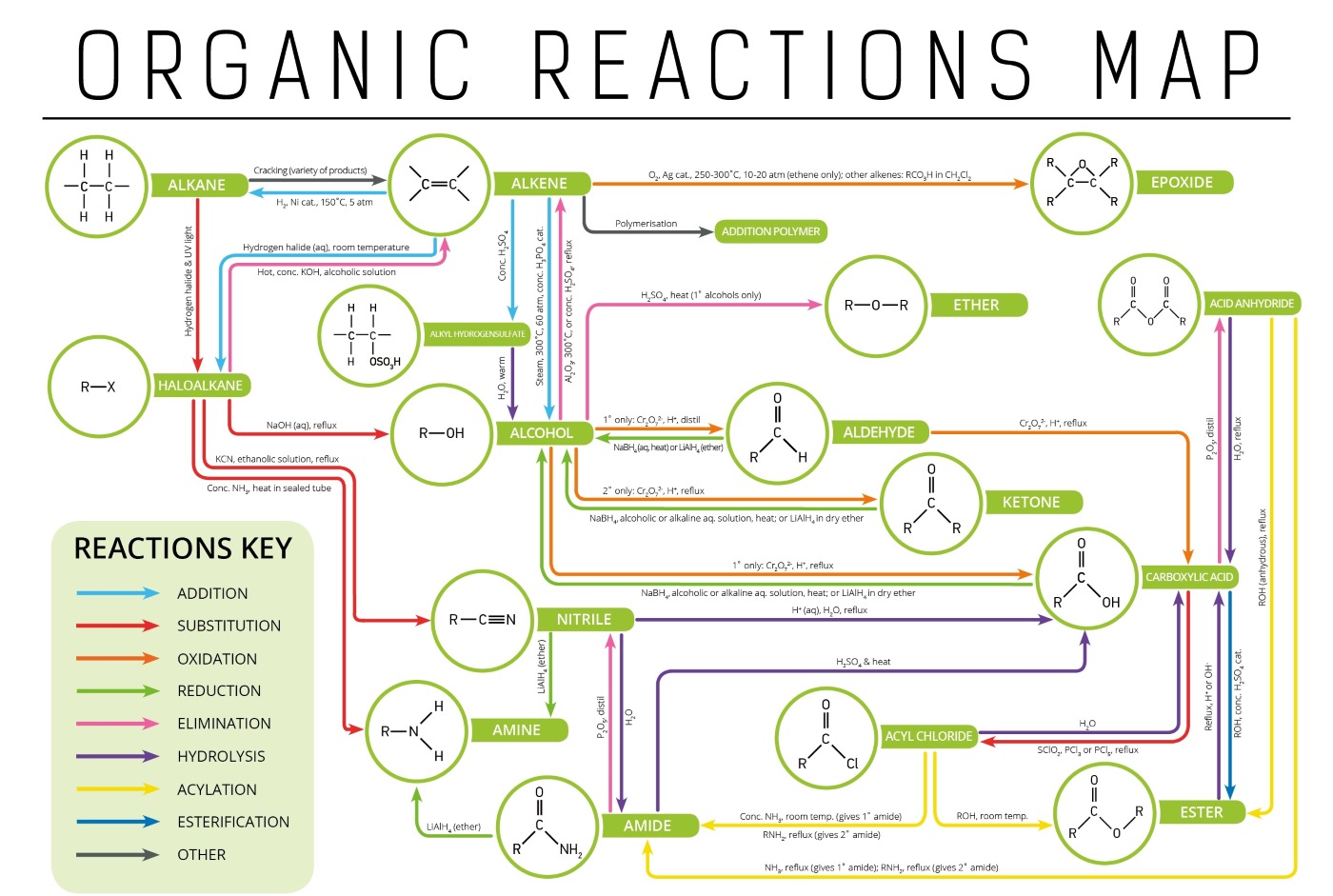
The world of organic chemistry is a fascinating one, filled with complex reactions and incredible discoveries. Organic reactions form the foundation of many essential processes, from drug development to material synthesis. Understanding these reactions is crucial for scientists and researchers in the field.In this article, we will explore nine mind-blowing facts about organic reactions that will leave you in awe of the incredible world of chemistry. From the remarkable efficiency of certain reactions to the surprising products that can be formed, these facts highlight the versatility and intricacy of organic reactions.So fasten your seatbelts and get ready for an exhilarating dive into the realm of organic chemistry, where molecules come alive and reactions unfold in truly astonishing ways.
Key Takeaways:
- Organic reactions are like magic tricks in chemistry, turning simple ingredients into complex compounds. They’re crucial for creating new medicines and materials that make our lives better.
- Chemists use special tricks called catalysts to speed up organic reactions and make them more efficient. They’re like secret ingredients that help create amazing new molecules.
Organic reactions are fundamental to the synthesis of complex molecules.
The ability to transform simple starting materials into intricate compounds through organic reactions is a cornerstone of organic chemistry. These reactions involve the breaking and formation of chemical bonds, allowing chemists to create new carbon-carbon, carbon-oxygen, or carbon-nitrogen bonds, among others.
Organic reactions can be classified into different types.
There is a wide range of organic reactions, including substitution, addition, elimination, and rearrangement reactions. Each type has specific characteristics and mechanisms that dictate how the reaction proceeds, making the field of organic chemistry incredibly diverse.
Catalysts play a crucial role in many organic reactions.
Catalysts are substances that facilitate organic reactions by increasing the rate of reaction. They provide an alternate pathway for the reaction to occur at lower energy barriers, making the reactions more efficient and selective.
Organic reactions can be influenced by external factors.
Temperature, pressure, solvent choice, and the presence of other reagents can all significantly impact the outcome of organic reactions. These factors can be carefully manipulated to control reaction selectivity, yield, and efficiency.
Organic reactions are not only limited to laboratory settings.
Organic reactions occur in various environments, including natural processes and industrial applications. For example, many biochemical reactions in living organisms are organic reactions that are crucial for life.
Organic reactions have led to groundbreaking discoveries in the pharmaceutical industry.
The development of new pharmaceutical drugs heavily relies on organic reactions. Through these reactions, chemists can synthesize complex drug molecules with enhanced therapeutic properties.
Organic reactions are constantly evolving.
As new techniques and technologies emerge, organic reactions continue to evolve and become more efficient. Chemists are always exploring new catalysts, reaction conditions, and strategies to improve existing reactions or develop novel ones.
Organic reactions require careful planning and analysis.
Before carrying out an organic reaction, chemists need to carefully plan the reaction conditions, choose appropriate reagents, and predict potential reaction pathways. Thorough analysis and characterization of the reaction products are essential for understanding the reaction mechanism and its success.
Organic reactions contribute to sustainable chemistry.
The development of environmentally friendly and sustainable organic reactions is a growing area of research. Scientists are actively working on reducing the use of hazardous substances, minimizing waste generation, and increasing reaction efficiency to promote greener chemistry.
Overall, the 9 mind-blowing facts about organic reactions highlight their significance in organic chemistry and their widespread applications. Understanding and harnessing organic reactions open up endless possibilities for the development of new compounds, materials, and drugs that can ultimately improve our lives.
Conclusion
Organic reactions are fascinating and play a crucial role in various fields of chemistry. Understanding the fundamental concepts behind these reactions is vital for scientists and researchers. In this article, we have delved into 9 mind-blowing facts about organic reactions.
We explored the concept of reaction mechanisms, which provide valuable insights into how reactions occur at the molecular level. We also learned about different types of organic reactions, such as substitution, addition, elimination, and oxidation-reduction reactions. Additionally, we discovered the importance of catalysts in enhancing reaction rates and selectivity.
Moreover, we discussed the impact of organic reactions in everyday life, including the synthesis of pharmaceutical drugs, polymers, and agricultural chemicals. We also explored how organic reactions have shaped the field of materials science, enabling the development of new materials with unique properties.
Overall, organic reactions are the foundation upon which modern chemistry is built. They continue to expand our understanding of the world around us and drive technological advancements in various industries.
FAQs
Q: What is an organic reaction?
An organic reaction is a chemical process in which one or more organic compounds undergo a transformation to form new compounds. These reactions are characterized by the breaking and making of covalent bonds between carbon atoms.
Q: What are some common types of organic reactions?
Some common types of organic reactions include substitution, addition, elimination, and oxidation-reduction reactions. Each type of reaction involves different changes in the molecular structure and the rearrangement of atoms.
Q: What role do catalysts play in organic reactions?
Catalysts are substances that increase the rate of a chemical reaction without being consumed in the process. In organic reactions, catalysts lower the activation energy required for the reaction to occur, making the reaction faster and more efficient.
Q: How are organic reactions important in everyday life?
Organic reactions have a significant impact on everyday life. They are responsible for the synthesis of pharmaceutical drugs, the production of polymers like plastics, and the manufacturing of agricultural chemicals. Organic reactions also contribute to the development of new materials with specific properties.
Q: What is the significance of understanding reaction mechanisms?
Understanding reaction mechanisms is crucial because it allows chemists to predict and control the outcome of organic reactions. By studying the step-by-step processes involved in a reaction, researchers can optimize conditions and design more efficient and selective reactions.
Organic reactions never cease to amaze, offering endless possibilities for scientific exploration. Unraveling their mysteries requires a deep understanding of electrophilic substitution, a process that plays a vital role in many organic transformations. Electrophiles, the key players in these reactions, exhibit captivating behavior and contribute to the complexity of organic chemistry. Continue your journey of discovery by exploring the extraordinary facts about electrophilic substitution and the intriguing nature of electrophiles themselves.
Was this page helpful?
Our commitment to delivering trustworthy and engaging content is at the heart of what we do. Each fact on our site is contributed by real users like you, bringing a wealth of diverse insights and information. To ensure the highest standards of accuracy and reliability, our dedicated editors meticulously review each submission. This process guarantees that the facts we share are not only fascinating but also credible. Trust in our commitment to quality and authenticity as you explore and learn with us.


